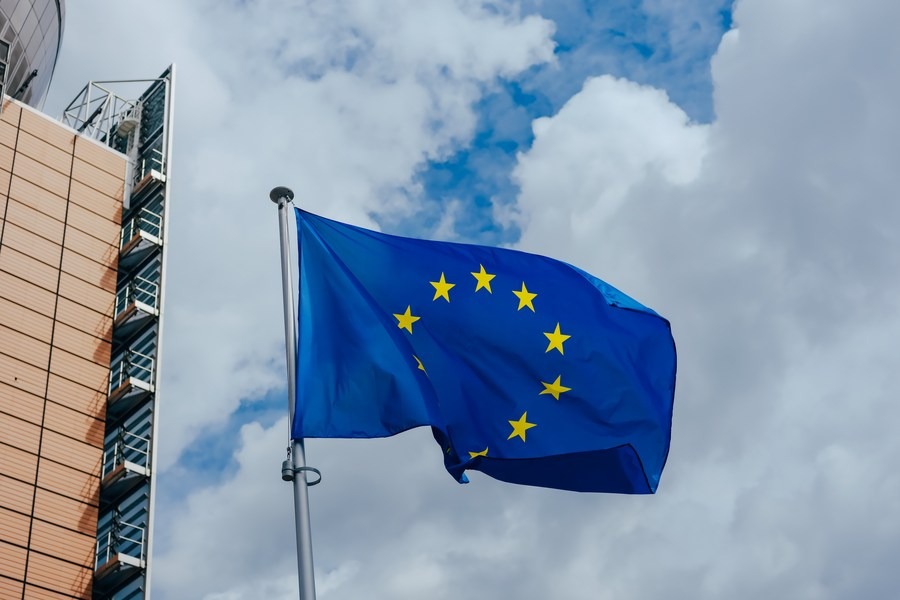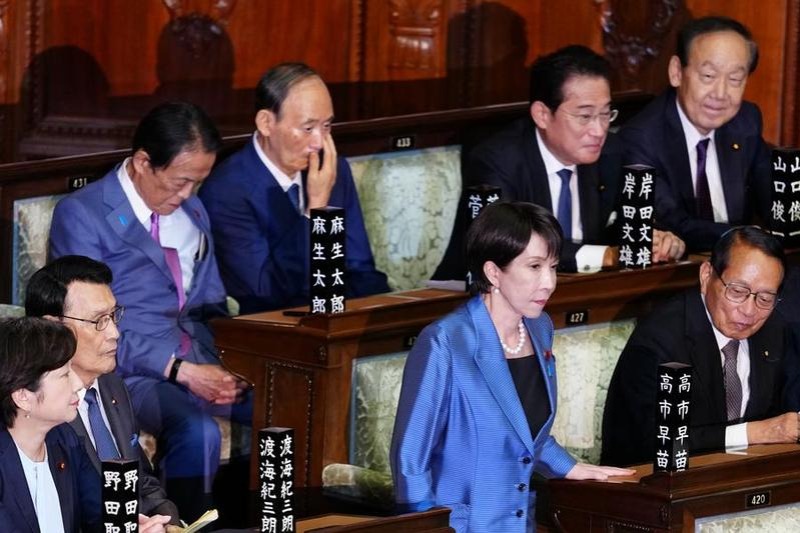West's 'overcapacity' narrative arrogant


The West has been hyping up its ill-advised "overcapacity" narrative again, this time targeting China. Four decades ago, the narrative was aimed at Japan. In fact, "Japan bashing" was all the rage in the 1980s, as the island nation was perceived by many in the US as a threat to the US economy. In 1987, several US Congress members, swinging sledgehammers, demolished a Toshiba radio in the Capitol, acting out their anger at allegations that a subsidiary of the Japanese electronics conglomerate had joined a Norwegian company to sell submarine technology to the Soviet Union.
Typically, no such theatrical protest targeted Norwegian products.
The protest took place at a time when many in the West, politicians in particular, feared that Japan would overtake the United States as the world's biggest economy. Of course, it was nothing but mass delusion, similar to the anti-China hysteria that emerged in the late 19th century in response to Chinese laborers arriving in North America and willing to work harder for lower wages than their white counterparts.
EU shouldn't follow in US footsteps
As US political scientist John Mueller said in an article in December last year, the angst over Japan's economic growth and business practices was intense and widespread in the West, in the US in particular, in the 1980s. In the article, headlined "Remember when Japan was going to take over the world?", Mueller quotes US political scientist Samuel Huntington as saying that "economics is the continuation of war by other means" — a variation of German military theorist Carl von Clausewitz's famous aphorism that "war is the continuation of policy with other means".
Besides, economist, public policy analyst and Columbia University professor Jeffrey D. Sachs said "US badmouthing of more competitive China impudent", adding that the latest campaign of the United States against China is the charge that the latter has overcapacity in a range of manufactured goods and so should restrain its exports.
I concur with Sachs' view that truth is simpler. China and other East Asian countries are the low-cost producers of a range of high-quality industrial products that the world urgently needs, including solar photovoltaic panel, electric vehicles, advanced batteries, wind turbines, 5G and more. Since the US lags behind China in these sectors, Washington is badmouthing Beijing as if achieving success in these sectors is some kind of bad behavior.
Sachs added that the US approach to China is based on a mix of arrogance, nastiness and naïveté. A toxic cocktail indeed. The Columbia University professor also emphasized that the US wants Europe to partly close its markets to China's goods.
How the European Union responds to this remains to be seen, though much depends on the outcome of the June 9 European Parliament elections that will determine the composition of the 27-nation European Commission, which currently is headed by Ursula von der Leyen. She is running for re-election and seems to have Washington's ear as far as the West's politico-economic relations with Beijing are concerned.
Von der Leyen has echoed US Treasury Secretary Janet Yellen's repeated claims about China's alleged overcapacity. Considering that both Von der Leyen and Yellen studied economics, I am puzzled that they have been continuously harping upon China's overcapacity narrative. As trained economists, they should know better. Though both are also senior politicians, it is disappointing to see them engaging in the politically motivated "China's overcapacity "narrative.
However, President Xi Jinping told both Von der Leyen and French President Emmanuel Macron in Paris on May 6 that there is no such thing as "China's overcapacity problem", adding that he hoped EU institutions would develop the right perception about China and adopt a positive China policy.
Overcapacity an old phenomenon
A person with even a modicum of knowledge about economics would know that overcapacity — too many products and too high production capacity with too few buyers — is an age-old phenomenon studied by economists as different in their analyses as Adam Smith and Karl Marx.
Harvard Business School editor Garry Emmons said in a markedly didactical article, headlined "Too Much of a Good Thing?", which was published way back in 1999 that "overcapacity per se isn't necessarily bad. With excess supply, prices go down; that's good for those industries benefiting from low-priced materials or commodities… In addition, overcapacity often springs from innovation — and an improved product muscles into the market alongside previous versions, now rendered passé."
Also, Emmons reaffirmed that "excess capacity is often in the eyes of the beholder."
Large economies such as the US, China, Germany and Japan are tackling the phenomenon all the time on the entrepreneurial level. Thanks to their "overcapacity" the four countries are able to supply the rest of the world with a wide range of goods that much smaller economies are not able or willing to produce and export.
It is in this context that Brussels-based Chinese diplomat Peng Gang, in his recent article, headlined "The flawed logic behind the so-called 'overcapacity' of China's new energy sector", reaffirmed that "overcapacity is a comparative concept".
According to Peng, China's new energy competitiveness is not because of subsidies, but due to Chinese enterprises' technological innovations, hard work and market competition. Peng says that in 2023, the production and sales of electric vehicles (EVs) in China reached 9.58 million and 9.49 million units respectively, basically striking a balance between production and sales, of which domestic sales accounted for 87.3 percent and foreign exports only 12.7 percent. In particular, Peng notes that China's EVs are popular among consumers in the EU and other regions of the world.
I share his viewpoint that new energy is the common future for humankind and that "at present, the global new energy capacity is far from enough and still needs to be significantly improved. There is no such overcapacity at all."
The West's "Chinese overcapacity" comes on the heels of the West's "decoupling" and "de-risking" strategy both of which failed to gain traction. The "overcapacity" claim appears to be the West's response to its failures on the EV development front, with the US imposing sky-high tariffs on EVs and some other products from China.
I find it puzzling that the products made to help the world tackle the climate crisis are now subject to huge customs duties. Interestingly, top executives of the German auto industry, which is vital to keeping the EU's economy running, have come out against the tariffs, and so have German Chancellor Olaf Scholz and Sweden's Prime Minister Ulf Kristersson. Both did so to safeguard their respective national interests.
Tariffs on Chinese products misguided
An editorial in the Financial Times, headlined "A misguided move on Chinese tariffs", published last week, says the Joe Biden administration's 100 percent tariff on EVs carries more bark than bite, because the US imports just 2 percent of its EVs from China.
The article also says that in the long run, tariff hikes insulate US industries from competition, stymieing innovation and raising the costs for consumers. And it concludes that Biden's tariff move is mostly about optics, targeted at appeasing voters in the US' industrial belt including the swing states of Pennsylvania and Michigan. According to the FT article, the measures risk turning the US presidential election campaign into a bidding war on China hawkishness.
US-China ties are the world's most important bilateral relationship, politically, economically and militarily, as the two sides are working on addressing the climate crisis, resolving regional conflicts, alleviating poverty and tackling other common issues.
The Five Principles of Peaceful Coexistence will celebrate its 70th anniversary next month. And even after seven decades, they offer the right framework for establishing win-win partnership between Beijing and Washington.
Accordingly, the "San Francisco Vision "the Xi-Biden meeting launched last year charted the direction for stable and sustainable China-US relations. But the US' misguided "Chinese overcapacity" narrative and steep tariff hikes on Chinese-made eco-friendly products, including EVs, are incompatible with the San Francisco Vision.
The author is director of the Macau Post Daily. The views don’t necessarily reflect those of China Daily.
The views don't necessarily reflect those of China Daily.
If you have a specific expertise, or would like to share your thought about our stories, then send us your writings at opinion@chinadaily.com.cn, and comment@chinadaily.com.cn.


































